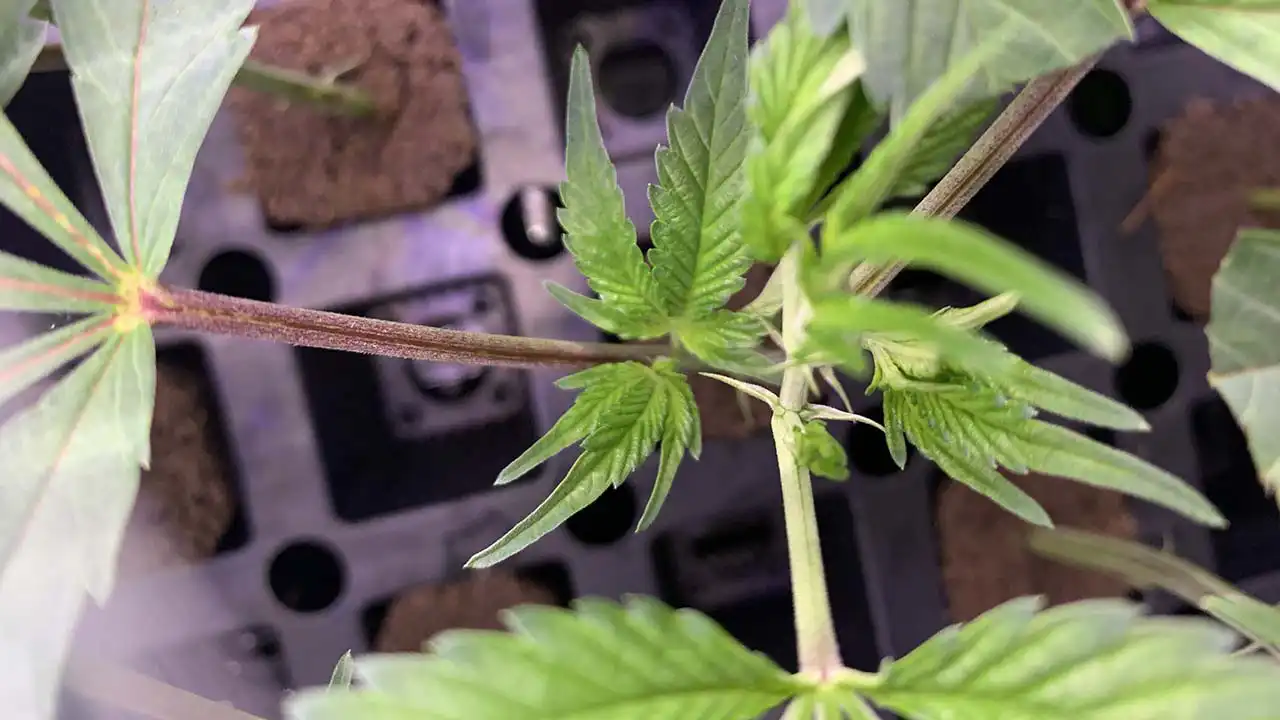Colorado’s marijuana cultivators now have freedom to procure genetics from a wider variety of sources.
Senate Bill 23-271 went into effect in January, part of a larger effort to improve conditions for Colorado operators while also protecting public health and safety.
Some hope the new opportunities set out by the rules will also help boost sales, which have slumped since the record-breaking sales of the COVID-19 pandemic.
Colorado cultivators previously could source new genetics from other licensed cultivators in the state.
That meant growers could either breed genetics that were already in the system or take the risk of bringing in new, noncompliant genetics.
“We called it the immaculate conception,” joked Matt Cooper, a regulated-industries attorney at Denver-based Fairfield and Woods.
“The new rules actually allow for new genetics to come about as long as they’re from appropriate sources.”
Companies working in both the medical and adult-use markets also couldn’t transfer genetics between the two markets before the new law.
Now, according to SB 23-271, marijuana cultivation facilities can obtain immature plants, seeds and other genetic material (such as tissue culture) from:
- Another medical or adult-use cultivation facility.
- A recreational marijuana testing facility.
- A licensed entity or “otherwise approved” entity to operate in another jurisdiction.
- An individual with an “employee license” in Colorado or someone holding a permit, registration or license to work in another state or U.S. territory that regulates marijuana.
- Any other source permitted by rule of the state licensing authority.
SB 23-271 also allows the transfer of immature plants, seeds and genetic material between medical and adult-use facilities.
State cannabis regulations and DEA guidance
For Native Roots Cannabis Co., one of the state’s largest vertically integrated operators, the old rules meant the business brought in only three new genetics in 2019, according to Jason MacDonald, senior director of cultivation operations.
“We’re one of the bigger names in Colorado, so that added another layer of, ‘We don’t want to give any genetics to Native Roots,’” MacDonald said in an interview with MJBizDaily.
“You’re just going to be our biggest competitor.”
MacDonald said cultivators are wondering whether seeds can be shared by mail – especially in light of 2022 guidance from the U.S. Drug Enforcement Administration stating that starter materials such as seeds and tissue culture don’t fall under the Controlled Substances Act because they don’t contain more than .03% THC.
Regardless of federal statutes, operators should be mindful of state laws, Cooper said.
“What people need to understand is that this is a meshwork of licensing, and we have to take into account Colorado’s laws,” he said.
Cooper advises his clients to first ensure that any out-of-state genetics source is permitted under its own state laws to transfer starter materials to another market.
It’s also important to meticulously document the process every step of the way.
Cannabis genetics documentation
Colin Mudd, the founder and principal consultant at Denver-based consultancy Konopé Compliance, was part of the rulemaking working group behind the new regulations.
He said the working group pushed for a way to bring unlicensed genetics into Colorado’s regulated market.
“There needs to be some sort of give from the enforcement side of things saying, ‘Yes, we have this hallowed, important, closed system,’” Mudd said in an interview with MJBizDaily.
“But from a strategic standpoint, from a marketing standpoint, we need to stay competitive.”
Unlike Oregon or Canada, where licensed cultivators have a grace period to source whatever genetics they choose, Colorado’s new regulations don’t permit licensed facilities to source unregulated cannabis – unless it’s through an owner or employee with a license.
“How the licensed source was able to obtain the genetic material, seeds or clones is not necessarily of the (Colorado) Marijuana Enforcement Division’s concern because that is one step removed from their jurisdiction,” Mudd said.
The most important thing is to be able to demonstrate a willingness and intent to comply with the rules, which can be shown through recordkeeping.
The only legal way to transfer genetics is through Colorado’s inventory tracking and business recordkeeping requirements, which means through Metrc, the software company currently contracted to work in the state.
For genetics from a source that isn’t capable of transferring seeds or other materials on a Metrc-generated manifest, cultivators should record and keep on file for three years:
- The name, address and license/registration/permit identification of the source of the genetics.
- All certificates of analysis associated with the genetics.
- Any other records that document the chain of custody of the genetics, such as an invoice, packing slip or other document showing its origin.
Mudd doesn’t advise clients to get seeds from an unlicensed seed bank.
“Undoubtedly, there will be people who are cavalier with this process,” he said, “but they are putting themselves at a higher risk for a violation that could result in the destruction of their plants because the plants are deemed unregulated marijuana.” (Full Story)

